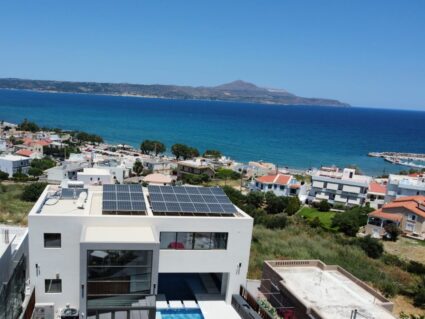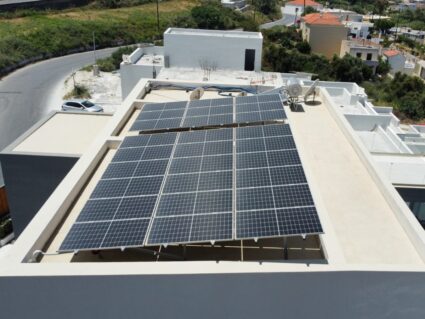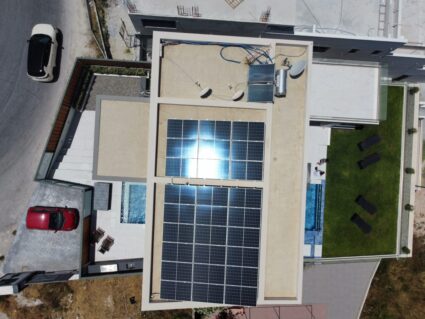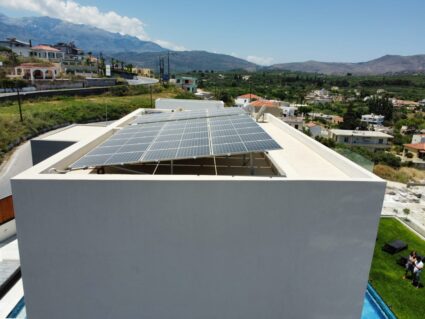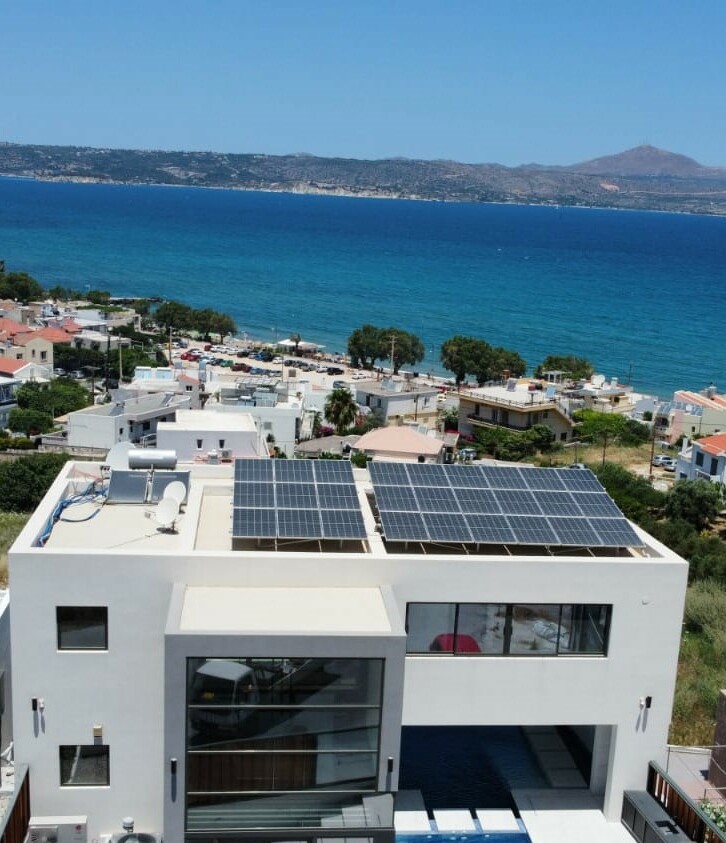Why do we need Photovoltaics?
The consequences of global warming and climate change are becoming more apparent and serious every day. The world is warming up at a fast rate and we are now becoming increasingly aware that renewable energy is the only way forward. Crete’s latitude is quite far south, allowing us to enjoy 300 days of sunshine a year, with many of those being cloudless days. With such a powerful source of renewable energy, Crete is starting to take advantage of this and use to it as an alternative to power stations for providing electricity. With the current economic situation, electricity prices have also sky rocketed. In Greece, there has been a 75% increase in electricity prices at the beginning of 2022. This will only continue to rise over the next few years.
Photovoltaics are the stepping stone in order for home owners to use the natural energy from the sun and convert it into electricity to power their houses. This helps the environment and the global warming crisis, as well as big savings on electricity bills and a sense of self-sufficiency.
What is Photovoltaics?
Photovoltaics is the conversion of direct light into electricity. Photovoltaic cells are grouped together in panels. These panels can then be grouped together depending on how much electricity needs to be generated. One panel would be sufficient for a water pump. While many panels group together could power a home.
What is the difference between photovoltaic and solar panels?
Photovoltaic panels convert thermal energy into electricity, where as solar panels convert solar radiation into heat. Solar panels absorb heat and then transfer this energy into a medium like water or glycol solution. However, unlike photovoltaics, solar panels only operate optimally when it is sunny and have significant heat loss on cloudy or cold days.
How do Photovoltaics work?
Photovoltaics work best and produce the most amount of electricity when they are positioned directly in the sun. Some photovoltaic panels can use a tracking system and follow the sun; however, these are expensive. Most photovoltaics are in a fixed position facing south and at a particular angle that gains best performance.
When light hits the cell, it excites the electrons and they move around at a higher energy state. The electrons of semi-conductors that are not normally free, become free. These free electrons can then be captured, resulting in an electrical current that can then be used as an electricity. The more light that enters the cells, the more electricity will be generated.
Do I need batteries with the photovoltaics?
Off Grid Systems
These systems are generally for remote buildings or homes with no access to the grid. If you currently don’t have mains power and are off grid, then you would require batteries to store your energy and an additional generator to ensure you have electricity when there is no sun.
Grid-Connected Systems
If you are already connected to the main electricity supply, then you do not have to buy batteries. You can use the power generated from the photovoltaics directly which allows you to have no or very low electricity bills. In the future it may be an option to sell any excess electricity not used back to the grid.
How much do Photovoltaics cost?
In 2010, the Greek government passed a law which allows the installation of photovoltaics. With the Cretan climate, a 1KW system can produce 1450Kwh per year. Currently you can sell back to the grid for €0.55 per kwh. Generally, photovoltaics can be used alongside mains power so you could be connected to mains power and buy and sell as and when you need it. This makes it a great option as you can take full advantage of Crete’s climate in the summer months and sell any energy you don’t require back to the grid. Currently, the return on investment is estimated at 3 years after the installation of photovoltaics.
A standard 3-bedroom household would probably require a 10kw system to be installed on their roof and a new meter would need to be installed to record the energy generated.
The photovoltaic panels don’t have many moving parts so there is not a lot of maintenance costs. The exact amount of time depends on climatic conditions and the quality of the panels but generally they come with a 20-25 year guarantee. Only the surface of the panels needs to be cleaned to ensure they work optimally.
Currently, any income generated from the sale of energy is not taxed.
Contact us
CostAnitaVillas work alongside a local company who can install your photovoltaic system. The total price depends on whether you require an off-grid system or grid-connected system, what size system you need for your household and your current location. Please contact one of our staff who would be happy to give you more information about photovoltaics or give you an estimated cost of installation of a photovoltaics system on your property.
